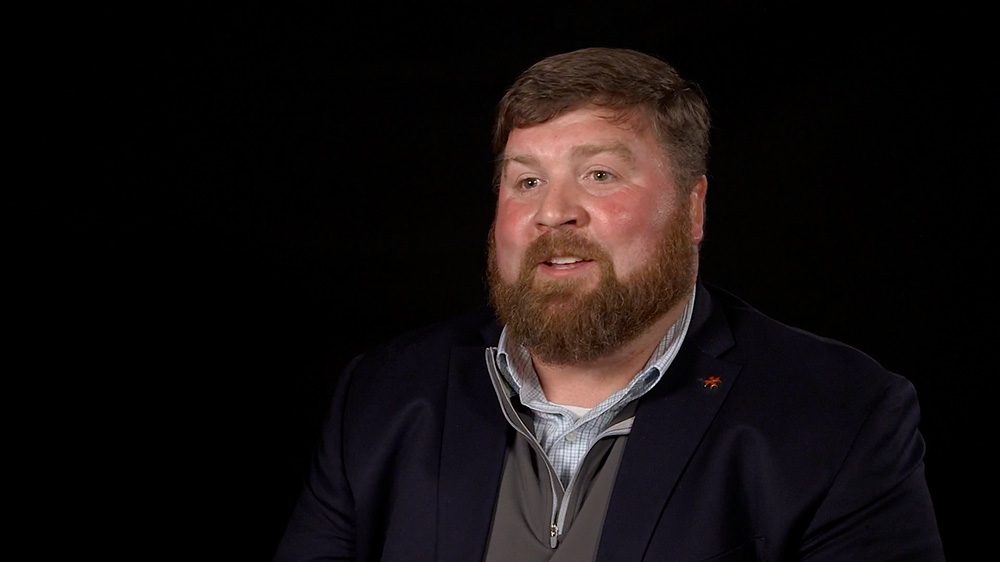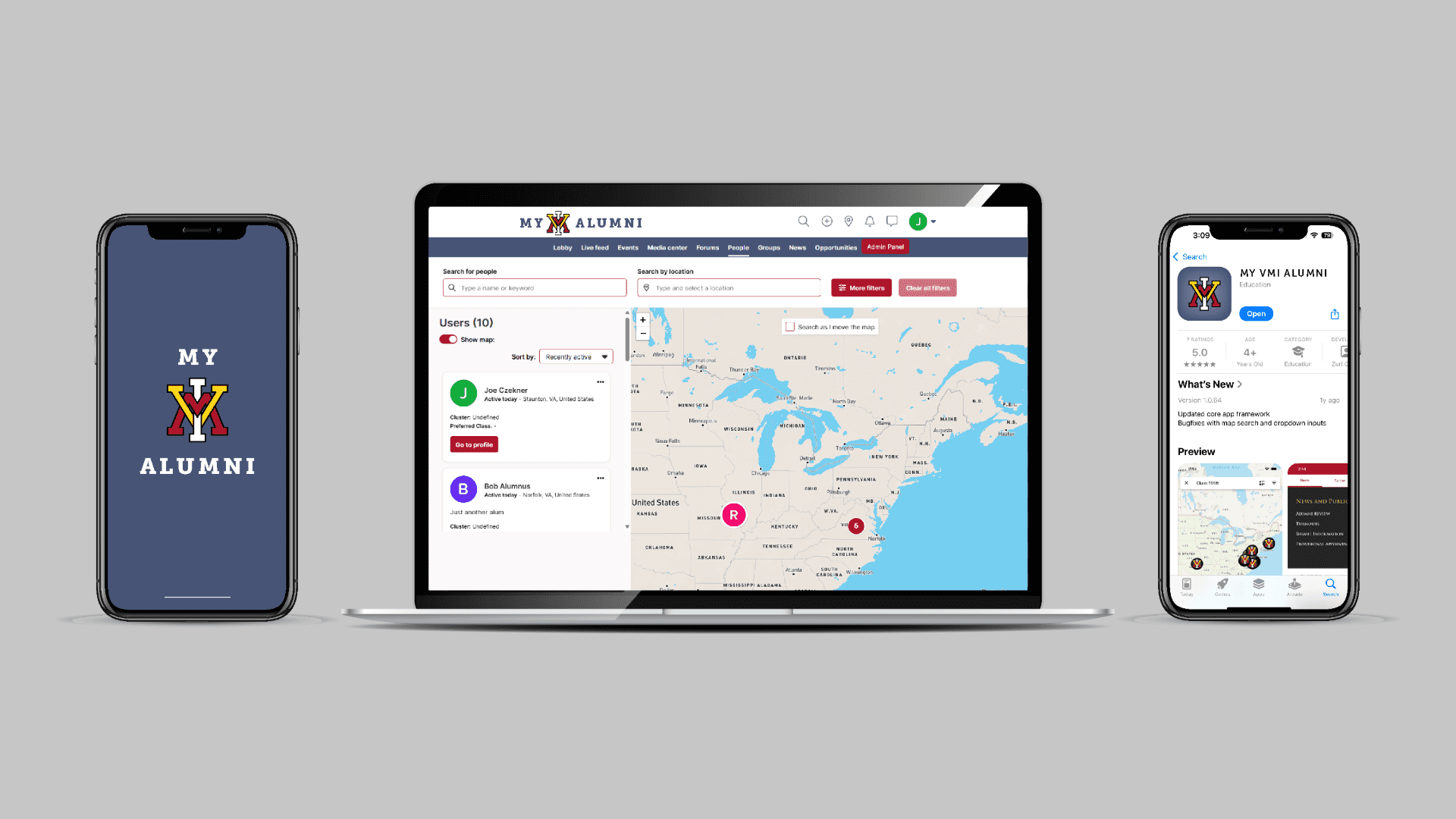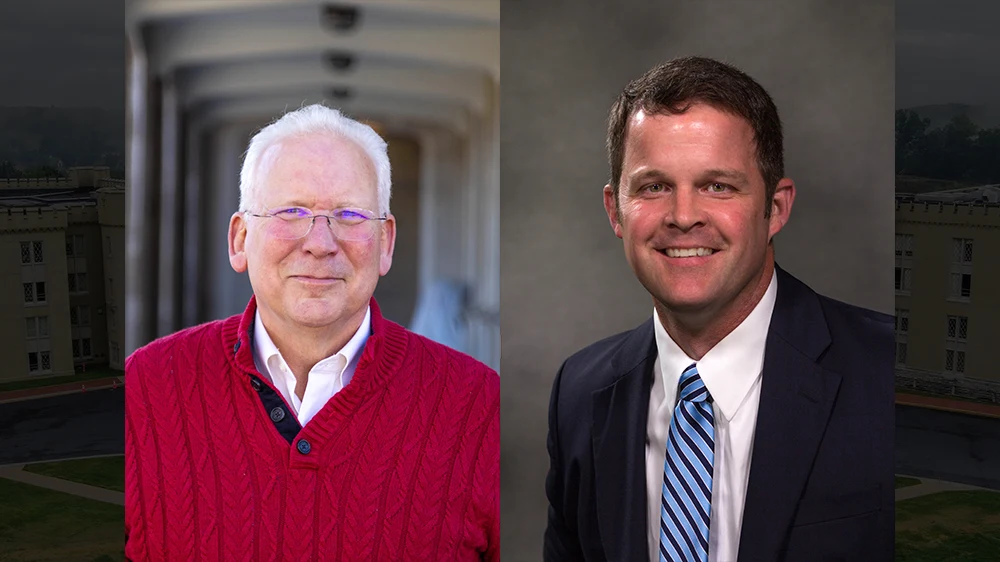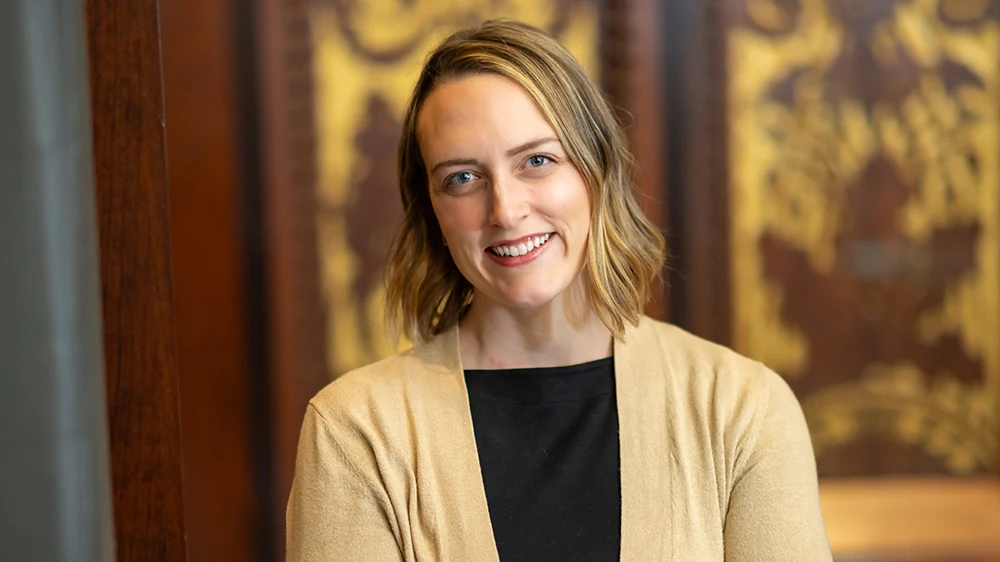On Sept. 11, 2001, Will Collier ’06 was on the cusp of beginning his senior year in high school. It was just before classes began at Woodberry Forest School, a private boys’ school near Orange, Virginia, and while Collier had been thinking of VMI long before the first plane hit the World Trade Center, the desire to serve his country that kicked in that day sealed his decision.
“That was a big part of coming to VMI was the challenge, but also serving the country, having the opportunity to do so,” said Collier, who’d known of the Institute all his life through his father, Bill Collier ’72. “And so myself and my brother rats—we were the first class that came in after 9/11. … I feel like our class had a sense of purpose, and a large percentage of us knew that we were coming in and looking to commission in the military.”
The sense of unity and brotherhood at VMI was a powerful force pulling Collier to Lexington.
“It came down to the camaraderie; it came down to wanting to be a part of VMI,” he stated. “And wanting to be a part of the brother rat community and just be completely surrounded by people and things that were bigger and better than myself. I wanted to better myself.”
Today, Collier stays busy giving back to VMI, most recently as an advisory member of the VMI Board of Visitors Superintendent Search Committee. He’s the Region IV Metro D.C. director, a member of the Alumni Agencies Board of Directors, and the Alumni Association Board of Directors first vice president. In addition, he’s the class agent for 2006, a position he’s held since November 2021.
It’s no easy feat to manage all those commitments while working as a contracts manager for construction consulting company K2, Inc. and raising a family of three, but Collier is willing to make the time because he values his VMI experience so highly. He still remembers the sense of excitement he felt when he challenged himself with the decision to attend the Institute.
As a cadet, Collier threw himself into the VMI experience wholeheartedly.
“When you get into barracks, when you go to experience it yourself, you have to push yourself,” he stated. “And by pushing yourself, surrounding yourself with your brother rats who are also pushing you, it makes the experience tremendously fulfilling, and one of the most proud things that I’ve accomplished in my life.”
“In my opinion, [volunteering and staying involved with VMI] is trying to do some repayment of the debt that I owe VMI for what VMI has given me and my family, which is tremendously appreciated and something that I don’t think I could ever fully repay.”
Will Collier '06
Between academics and playing on VMI’s NCAA Division I lacrosse team, Collier’s 4 years in barracks sped by quickly. When he graduated with a Bachelor of Arts degree in history and a commission in the U.S. Army, Collier embarked on the mission he’d set for himself almost 5 years earlier of serving his country in the armed forces. He spent the next 8 years as a logistics officer and an acquisitions officer.
As an Army officer, Collier quickly realized that VMI had prepared him exceptionally well for life in the service—not just in terms of wearing a uniform and having a regimented schedule, but in dealing with others whose backgrounds were dissimilar to his own.
“The ROTC department … helped prepare me for dealing with people as a platoon leader, for dealing with people that come from different places, different backgrounds,” he stated. “VMI is sort of a microcosm for that in barracks. VMI has always kind of been this microcosm of society. It’s a tremendous melting pot and a leadership lab.”
At many colleges and universities, Collier pointed out, it’s very possible for students to self-segregate into affinity groups like fraternities, sororities, or majors, but VMI is intentionally set up to prevent that.
“At VMI, you’re thrown into a mix with everybody,” he said. “And you all live within feet of each other. That lesson is tremendously valuable in all things in life.”
These days, Collier not only stays in close touch with his brother rats but also makes frequent trips to Lexington for board meetings and other activities.
“Your presence and time are almost more valuable than money,” said Collier. “In my opinion, it’s trying to do some repayment of the debt that I owe VMI for what VMI has given me and my family, which is tremendously appreciated and something that I don’t think I could ever fully repay.”
Because of his extensive involvement, Collier is very aware that the VMI of 2025 isn’t exactly the same as the VMI of 2006—but to him, this shows the strength of the Institute as it adapts to the needs of the 21st century.
“It’s different in a lot of ways,” he acknowledged. “There is the change piece, but I would say instead of being scared of the change or seeing the change as a negative thing, I would say come back and find out for yourself why the change is a good thing and why the changes have occurred.”
Looking beyond new buildings, uniforms with belt loops, cafeteria-style dining, and other adjustments, Collier sees an Institute whose central purpose is unchanged.
“The mission of VMI has remained the same, and that’s to supply those educated leaders who are prepared to go out into all walks of society,” he commented. “If we remained the same as we did 10 or 15 or 20 years ago, we wouldn’t be progressing. … I just tell alumni, tell my brother rats, and anyone who hasn’t come back to VMI in a while or is hesitant to come back, please come see how great it is.”
-

Victoria Raff Digital Content Strategist
The digital content strategist is responsible for creating compelling, audience-appropriate, multi-channel content for social media, and for monitoring the VMI Alumni Agencies' social media accounts. The strategist supports all communications efforts, including video editing, website updating, and email marketing deployment and training.

Mary Price Development Writer/Communications Specialist
The development writer plays a key role in producing advancement communications. This role imagines, creates, and produces a variety of written communication to inspire donors to make gifts benefiting VMI. Utilizing journalistic features and storytelling, the development writer will produce content for areas such as Annual Giving, stewardship, and gift planning.




